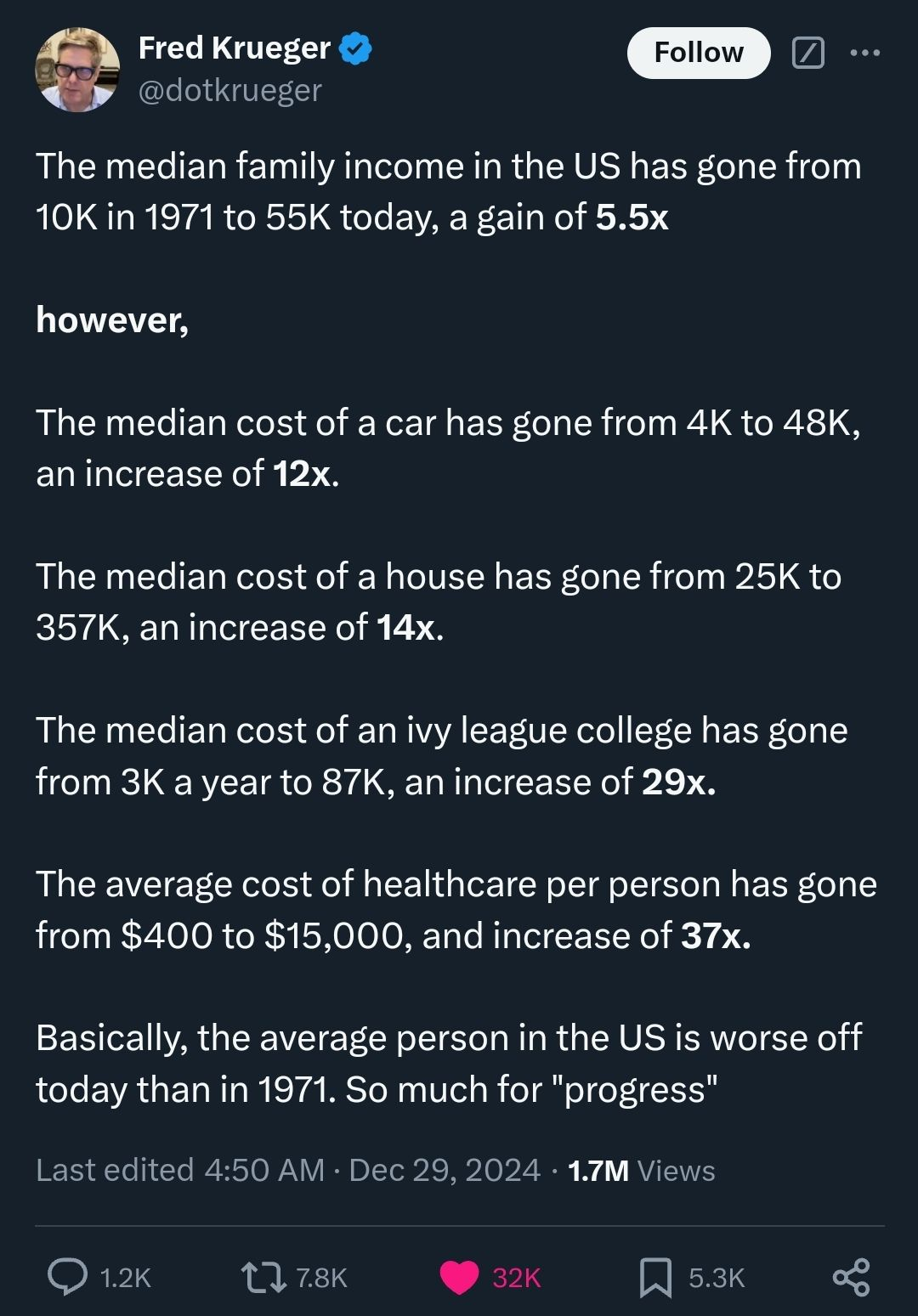this post was submitted on 30 Dec 2024
1499 points (98.8% liked)
Microblog Memes
6144 readers
2115 users here now
A place to share screenshots of Microblog posts, whether from Mastodon, tumblr, ~~Twitter~~ X, KBin, Threads or elsewhere.
Created as an evolution of White People Twitter and other tweet-capture subreddits.
Rules:
- Please put at least one word relevant to the post in the post title.
- Be nice.
- No advertising, brand promotion or guerilla marketing.
- Posters are encouraged to link to the toot or tweet etc in the description of posts.
Related communities:
founded 2 years ago
MODERATORS
you are viewing a single comment's thread
view the rest of the comments
view the rest of the comments

But that's just it. New cars are basically a luxury today, because cars last so long that there's a robust used car market. Most people who need cars buy used, and today's 5-year-old car with 60,000 miles is expected to last much longer than 1971's brand new cars. Then, even used cars retain a percentage of their value better today than new cars did back then.
So the typical car buyer in 1971 bought new, and a typical car buyer in 2024 buys used. And the used car being bought today will last longer and has better features (and uses less gasoline, which by the way has gone up in price slower than overall inflation).
The last 5 years have been bad for the consumer in buying cars. But the previous 50 years were huge progress for the consumer, when cars stopped rusting holes in them, when oil changes went from once every 3000 miles to closer to 10k miles, sometimes up to 15k, and when reliability increased enough to where maintenance outside of scheduled maintenance or car accidents is unusual.
The robust used market helps with this, too. There are cheap cars in existence, and those beaters are still more reliable than the beaters of the 70's.
No matter how you slice it, driving is cheaper and better today than it was in the 70's.
And yet, other nations manage to build and sell perfectly reliable new cars for affordable prices today. For an extreme example, look at China's EV market. US automakers simply don't want to make affordable vehicles, and US vehicles are often more unreliable than more affordable Japanese or Korean imports. The US isn't the only country on Earth. It's just US automakers that decided to focus exclusively on the luxury market.
I'm talking about the US market, which is now dominated by Japanese automakers who build cars in the U.S. that completely changed the reliability game, and the Korean automakers that started at the economy side of things and slowly moved upmarket over the last 25 years. They're not even imports, as most of them are made in North America specifically for the US market, and these same popular models don't get sold in Japan or Korea or wherever the parent company is based. The Japanese automakers are exactly who I was thinking about when I made my post about reliability and longevity in the US for US consumers.
Even the luxury side of things has almost entirely been abandoned by traditional American automakers, where European brands dominate. But the ultra-luxury (or sporty supercars) aren't part of the conversation here because the typical American household doesn't buy those.
Yes, but this whole post is about the US economy and the typical household in the US. We've only been talking about the US, because that's how the post started.